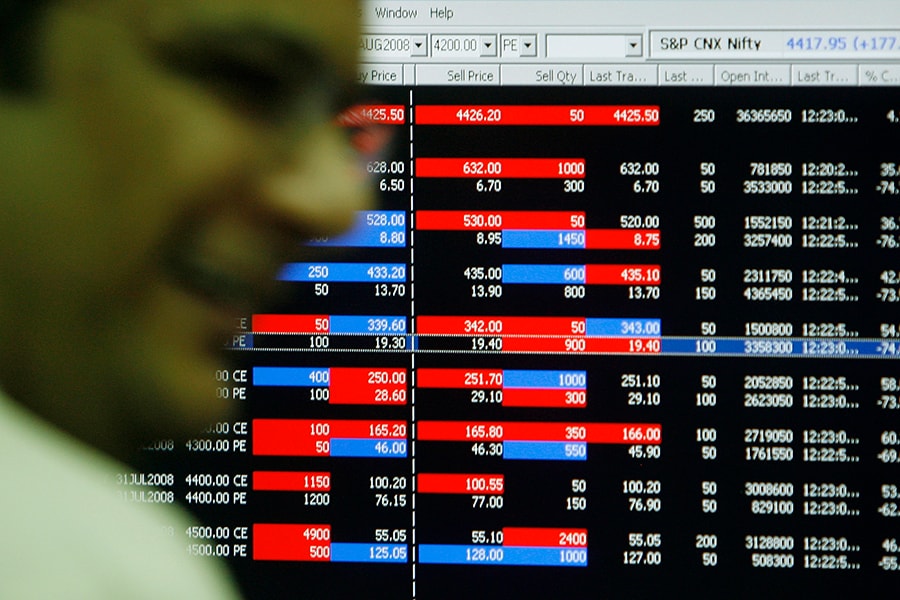
Stock markets set to rally further following BJP UP state election victory
Experts underplay local impact on expected US-Fed rate hike move
 Image: Punit Paranjpe / Reuters (for illustrative purposes only)
Image: Punit Paranjpe / Reuters (for illustrative purposes only)
Fund managers and analysts forecast India’s stock markets to open strong and rally upwards when trading commences next Tuesday (March 14), after the Bharatiya Janata Party (BJP) scored an emphatic victory in the key Uttar Pradesh (UP) state assembly elections 2017, winning 325 out of the 403 seats.
Like UP, the party bagged three-fourth majority in Uttarakhand as well, taking home 57 out of 70 seats.
In Punjab, the Congress came back to power in Punjab after 10 years, winning 77 seats out of the possible 117. The party also staged a strong performance in Goa (17 / 40) and Manipur (28 / 60), falling short of outright majority in both the states.
The results from these state elections, particularly the most populated state of Uttar Pradesh, were seen as important events for the BJP, being the first after the controversial demonetisation move, on November 8 last year.
“Demonetisation actually succeeded and did not fail. Several got it (the outcome) completely wrong,” says Gautam Trivedi, CEO of Religare Capital Markets. “This appears to be a resounding victory and a complete opposition wipeout. I expect the markets to open gap-up on Tuesday,” he told Forbes India.
But experts declined to comment on how long an upswing would sustain.
RELATED: Election victory should lead to UP-ping the ante on reform
India’s stock markets have risen nearly nine percent in 2017, closing on Friday (March 10), with the benchmark 30-share BSE Sensex Index at 28,946.23 points, near its 52-week high of near 29,150 levels. This euphoria has been led by domestic demand for stocks, particularly through mutual funds and local institutional investors.
Analysts said that the impact of a possible interest rate hike from the US Federal Reserve next week may be overdone. Latest US job data was better-than-expected and wages were strong, which raised speculation that the US central bank will start to hike interest rates.
But Dharmesh Kant, vice president and head research (retail) at Motilal Oswal Securities, said India’s stock markets were likely to override these concerns. “I expect capital flows to start thick and fast,” he told Forbes India. Foreign institutional investor buying had slowed, on expectations of a US Fed rate hike and concerns relating to demonetization and corporate governance issues.”
A US interest rate hike usually means bad news for emerging markets such as India. Higher rates could lead to the strengthening of the US dollar and aid its economy, while capital could flow out of other economies.
India’s economy, which is domestic consumption demand-led, is quite insulated at this stage, experts say. Earlier this month, official data showed that India’s economy grew by 7 percent in the October to December 2016 quarter, beating most expectations, when it was assumed that the impact of demonetization would be most felt. The government has also kept the full year forecast for the economy unchanged at 7.1 percent.
“The UP elections show that the public mandate is clearly in favour of the government,” Kant said. He also expects an upmove for the markets when the Q4 (January to March 2017) corporate earnings come in.
Ajay Bodke, CEO and chief portfolio manager (PMS) at Prabhudas Lilladher said that “BJP's emphatic victory in UP would embolden the Prime Minister in aggressively expediting key structural economic reforms that have been hobbling India's growth impulses.”
“Equity market would be rejoiced with this outcome and scale a new high ably supported by a torrent of domestic liquidity. Though valuations remain expensive markets would pin its hope on recovery of as-yet tepid corporate earnings over the next few quarters and the passage of GST (Goods and Services Tax)".





